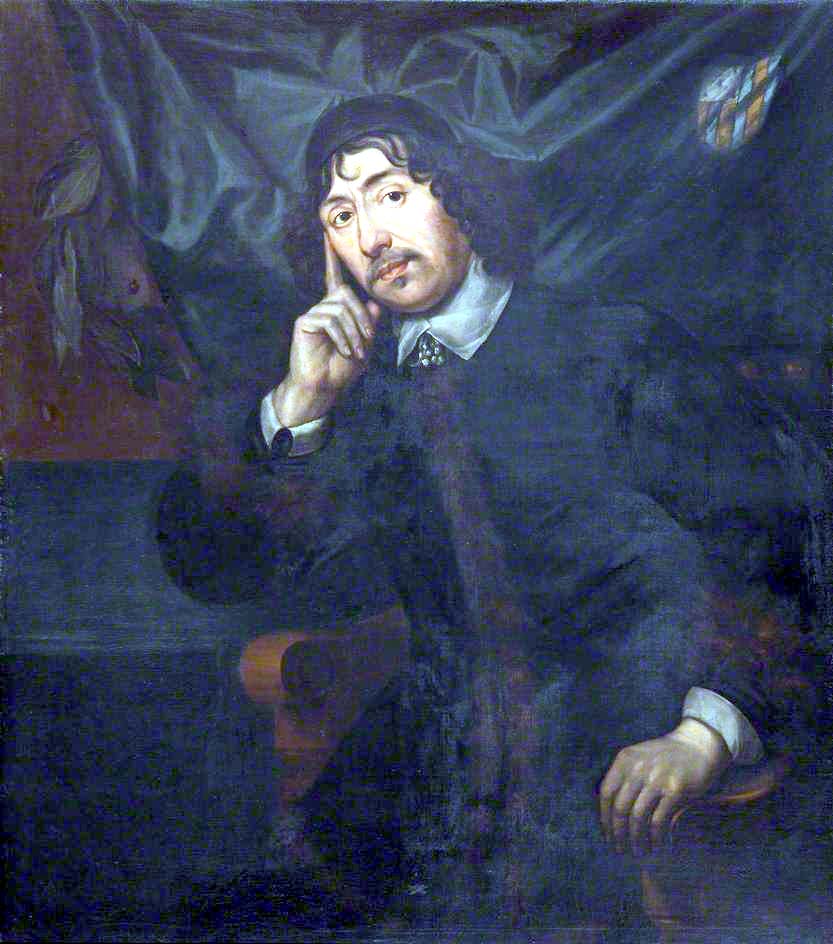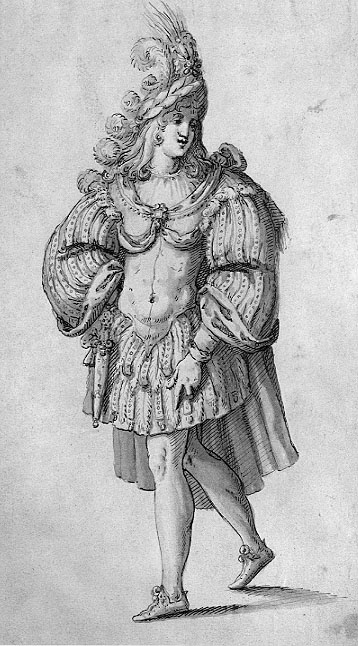|
The Arcadia (play)
''The Arcadia'' is James Shirley's dramatization of the prose romance ''The Countess of Pembroke's Arcadia'' by Sir Philip Sidney, one expression of the enormous influence that Sidney's work exercised during the 17th century. Shirley's stage version was first published in 1640. The 1640 quarto was published by booksellers John Williams and Francis Eglesfield. The title page attributes the play to Shirley, and states that it was acted by "her Majesty's servants" at the Phoenix playhouse which was the Cockpit Theatre. Alfred Harbage has disputed the attribution to Shirley. The play has been characterized as "typical Fletcherian dramatic romance, slight of characterization, improbable of plot, but full of unexpected turns, and pretty sentiment, and poetic charm." Shirley scholars have disagreed on the significance of the play in the dramatist's canon. Schelling considered it an anomaly with no larger impact, while Nason thought that it represented Shirley's "complete acceptance of r ... [...More Info...] [...Related Items...] OR: [Wikipedia] [Google] [Baidu] |
James Shirley
James Shirley (or Sherley) (September 1596 – October 1666) was an English dramatist. He belonged to the great period of English dramatic literature, but, in Charles Lamb's words, he "claims a place among the worthies of this period, not so much for any transcendent genius in himself, as that he was the last of a great race, all of whom spoke nearly the same language and had a set of moral feelings and notions in common." His career of play writing extended from 1625 to the suppression of stage plays by Parliament in 1642. Biography Early life Shirley was born in London and was descended from the Shirleys of Warwick, the oldest knighted family in Warwickshire. He was educated at Merchant Taylors' School, London, St John's College, Oxford, and St Catharine's College, Cambridge, where he took his BA degree in or before 1618. His first poem, ''Echo, or the Unfortunate Lovers'' was published in 1618; no copy of it is known, but it is probably the same as 1646's ''Narcissus ... [...More Info...] [...Related Items...] OR: [Wikipedia] [Google] [Baidu] |
The Countess Of Pembroke's Arcadia
''The Countess of Pembroke's Arcadia'', also known simply as the ''Arcadia'', is a long prose pastoral romance by Sir Philip Sidney written towards the end of the 16th century. Having finished one version of his text, Sidney later significantly expanded and revised his work. Scholars today often refer to these two major versions as the ''Old Arcadia'' and the ''New Arcadia''. The ''Arcadia'' is Sidney's most ambitious literary work by far, and as significant in its own way as his sonnets. Composition and publication Sidney's ''Arcadia'' has a history that is unusually complex even for its time. The ''Old Arcadia'' Sidney may have begun an early draft in the late 1570s, when he was in his twenties. His own comments indicate that his purpose was humble; he asserts that he intended only to entertain his sister, Mary Herbert, from 1577 Countess of Pembroke. This version is narrated in chronological order, with sets of poems separating the books from each other. It seems likely tha ... [...More Info...] [...Related Items...] OR: [Wikipedia] [Google] [Baidu] |
Philip Sidney
Philip, also Phillip, is a male given name, derived from the Greek language, Greek (''Philippos'', lit. "horse-loving" or "fond of horses"), from a compound of (''philos'', "dear", "loved", "loving") and (''hippos'', "horse"). Prominent Philips who popularized the name include List of kings of Macedonia, kings of Macedonia and one of the apostles of early Christianity. ''Philip'' has #Philip in other languages, many alternative spellings. One derivation often used as a surname is Phillips (surname), Phillips. It was also found during ancient Greek times with two Ps as Philippides (other), Philippides and Philippos. It has many diminutive (or even hypocorism, hypocoristic) forms including Phil, Philly (other)#People, Philly, Lip (other), Lip, Pip (other), Pip, Pep (other), Pep or Peps. There are also feminine forms such as Philippine de Rothschild, Philippine and Philippa. Antiquity Kings of Macedon * Philip I of Macedon * Philip II ... [...More Info...] [...Related Items...] OR: [Wikipedia] [Google] [Baidu] |
Cockpit Theatre
The Cockpit was a theatre in London, operating from 1616 to around 1665. It was the first theatre to be located near Drury Lane. After damage in 1617, it was named The Phoenix. History The original building was an actual cockpit; that is, a staging area for cockfights. Most likely a round building with a peaked roof, about in diameter, it was erected under Henry VIII, c. 1530-32, as part of a gaming complex. Records indicate a major restoration in 1581-82 and renovations in 1589-90, 1602-3, and 1608-9 (the latter under the supervision of John Best, "cockmaster" to Henry Frederick, Prince of Wales, King James I of England, James I's eldest son and heir). In August 1616, Christopher Beeston acquired the lease to the building and converted it to an indoor playhouse. In March 1617, rioting apprentices attempted to destroy the playhouse, probably out of anger that their favorite plays had been removed from the Red Bull outdoor amphitheater, which charged only one penny for admissio ... [...More Info...] [...Related Items...] OR: [Wikipedia] [Google] [Baidu] |
Alfred Harbage
Alfred Bennett Harbage (July 18, 1901 – May 1976) was an influential Shakespeare scholar of the mid-20th century. Life He was born in Philadelphia and received his undergraduate degree and doctorate from the University of Pennsylvania. He lectured on Shakespeare both there and at Columbia University, Columbia before becoming a professor at Harvard University, where he taught for many years. He was the General Editor of the Pelican Books edition of the works of Shakespeare. He also wrote a number of well-received books on Shakespeare's works, among them ''Shakespeare's Audience'' (1941), ''As They Liked It'' (1947), ''Shakespeare and the Rival Traditions'' (1952), and ''Shakespeare Without Words'' (1966). Though best known for his work on Shakespeare, Harbage's literary scholarship extended to his successors too; he did important work on a range of seventeenth-century figures. In this area, his books ''Thomas Killigrew, Cavalier Dramatist 1612-1683'' (1930), ''Sir Will ... [...More Info...] [...Related Items...] OR: [Wikipedia] [Google] [Baidu] |
Masque
The masque was a form of festive courtly entertainment that flourished in 16th- and early 17th-century Europe, though it was developed earlier in Italy, in forms including the intermedio (a public version of the masque was the pageant). A masque involved music, dancing, singing and acting, within an elaborate stage design, in which the architectural framing and costumes might be designed by a renowned architect, to present a deferential allegory flattering to the patron. Professional actors and musicians were hired for the speaking and singing parts. Masquers who did not speak or sing were often courtiers: the English queen Anne of Denmark frequently danced with her ladies in masques between 1603 and 1611, and Henry VIII and Charles I of England performed in the masques at their courts. In the tradition of masque, Louis XIV of France danced in ballets at Versailles with music by Jean-Baptiste Lully. Development The masque tradition developed from the elaborate pageants and cou ... [...More Info...] [...Related Items...] OR: [Wikipedia] [Google] [Baidu] |
English Renaissance Plays
English usually refers to: * English language * English people English may also refer to: Peoples, culture, and language * ''English'', an adjective for something of, from, or related to England ** English national identity, an identity and common culture ** English language in England, a variant of the English language spoken in England * English languages (other) * English studies, the study of English language and literature * ''English'', an Amish term for non-Amish, regardless of ethnicity Individuals * English (surname), a list of notable people with the surname ''English'' * People with the given name ** English McConnell (1882–1928), Irish footballer ** English Fisher (1928–2011), American boxing coach ** English Gardner (b. 1992), American track and field sprinter Places United States * English, Indiana, a town * English, Kentucky, an unincorporated community * English, Brazoria County, Texas, an unincorporated community * Engl ... [...More Info...] [...Related Items...] OR: [Wikipedia] [Google] [Baidu] |
1640 Plays
Year 164 ( CLXIV) was a leap year starting on Saturday (link will display the full calendar) of the Julian calendar. At the time, it was known as the Year of the Consulship of Macrinus and Celsus (or, less frequently, year 917 ''Ab urbe condita''). The denomination 164 for this year has been used since the early medieval period, when the Anno Domini calendar era became the prevalent method in Europe for naming years. Events By place Roman Empire * Emperor Marcus Aurelius gives his daughter Lucilla in marriage to his co-emperor Lucius Verus. * Avidius Cassius, one of Lucius Verus' generals, crosses the Euphrates and invades Parthia. * Ctesiphon is captured by the Romans, but returns to the Parthians after the end of the war. * The Antonine Wall in Scotland is abandoned by the Romans. * Seleucia on the Tigris is destroyed. Births * Bruttia Crispina, Roman empress (d. 191) * Ge Xuan (or Xiaoxian), Chinese Taoist (d. 244) * Yu Fan Yu Fan (, , ; 164–233), courtes ... [...More Info...] [...Related Items...] OR: [Wikipedia] [Google] [Baidu] |



